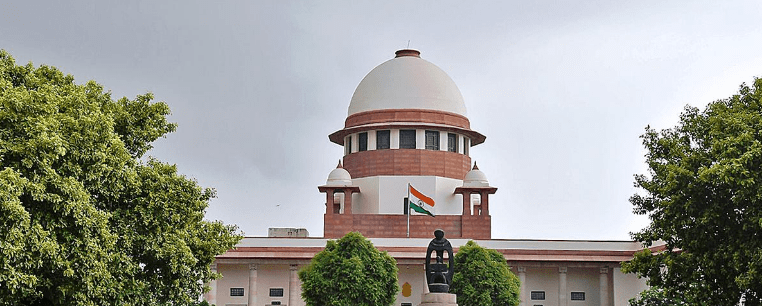
The Supreme Court on Wednesday pierced the practice of filing sealed cover reports in courts, saying it violated natural justice principles, as it infringes the right to fair and reasonable proceedings. Severely criticizing sealed cover proceedings, the Supreme Court barred the government from using national security as a pretext to use the procedure and keep appellants in the dark about the reasons behind contested action.
The court’s remarks against the sealed covered procedure came while delivering a judgment on the Malayalam news channel, MEDIAONE’S petition challenging the Modi government’s refusal to renew its broadcasting license.
The channel filed a petition in the supreme court challenging the Kerala High Court division bench judgment which upheld the central government’s revocation of security clearance for the renewal of the channel’s license.
The Supreme Court on 13 March put a stay on the ban, allowing the channel to resume its operation in the same manner it was being operated before the security clearance revocation.
The bench of Chief Justice of India, DY Chandrachud and Justice Hema Kohli took dim view of the state for using national security as a tool to deny information to the public, thereby infringing their rights to seek remedy provided under the law. The court noted that it is not in correspondence with the rule of law.
During the hearing of the matter, the government submitted certain facts in a sealed report seeking that they cannot be revealed to the public due to a threat to national security. Now, in a sealed cover procedure which was adopted by the Kerala high court under Order 13 Rule 7, only the judge is allowed to read that report, and no one else, even the parties to the case, are not allowed to know what is written in the report.
The Supreme Court in its order ruled that the Centre’s refusal to renew the broadcast license of Media One amounted to restricting the freedom of the press and criticizing the government policies does not make it a reasonable restriction under Article 19(2) of the constitution. The court refused to accept the government’s threat to national security argument to deny the license. Such an assertion must be backed by material evidence.
In the court, the promoters of the channel submitted that they did not get a chance to defend themselves, because the national security reasons produced to deny renewal of the license were given only to the high court in a sealed cover. On March 15, 2022, the Supreme Court reversed the high court order and allowed the channel to resume operations.
There were also allegations of a connection between channel promoters and the Jamaat-e-Islami Hind and the court on this behalf said that when the Jamaat-e-Islami is not a banned organization, it is precarious for the state to condemn that links with the organization would affect the sovereignty and integrity of the nation.
A less restrictive way which could be adopted in these types of proceedings, where the government is hesitant to disclose the contents of its reports is holding a public interest immunity proceeding. In this, the court abridges a confidential portion of a government document and provides a summary of its contents to the parties to the case. The Appellants can further produce their arguments based on the summary
The court also struck a balance by ruling that while there may be material which has serious concerns with national security, which cannot be disclosed, the constitutional principle of procedural guarantees is equally important, and it cannot be turned into a dead letter. As the highest constitutional court, we must balance these two principles when they are in conflict. To protect the appellant against an injury to his procedural safeguards in public interest immunity proceedings, the court has the power to appoint an amicus curiae. The amicus curiae would go through the documents provided in a sealed cover, without sharing it with the opposite party, and report whether the document needs to be disclosed and must always work in favour of the applicant.
Secrecy of the adjudication process through a sealed cover mechanism gives birth to partiality, corruption and other voices that are antithetical to a democratic government model, the court said.
Written by VAISHNAVI GOEL, 6TH SEMESTER, PUNJAB SCHOOL OF LAW, PUNJABI UNIVERSITY, PATIALA





0 Comments